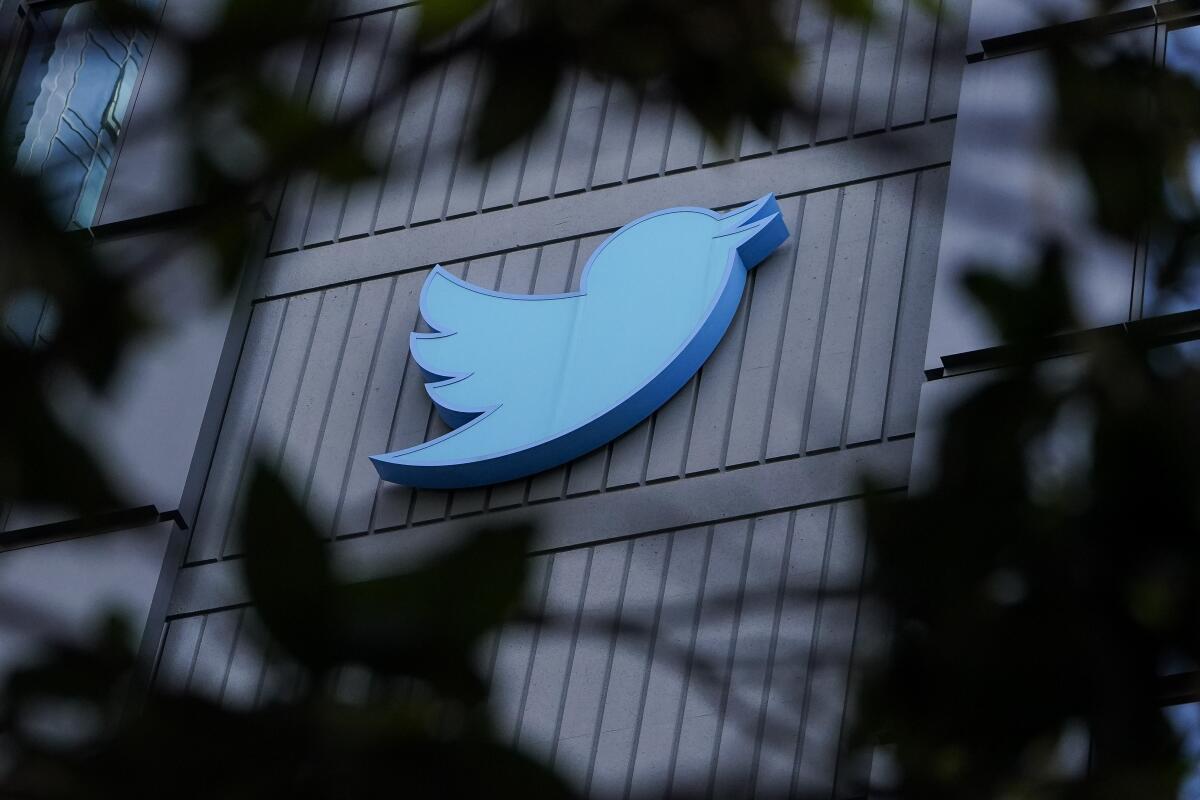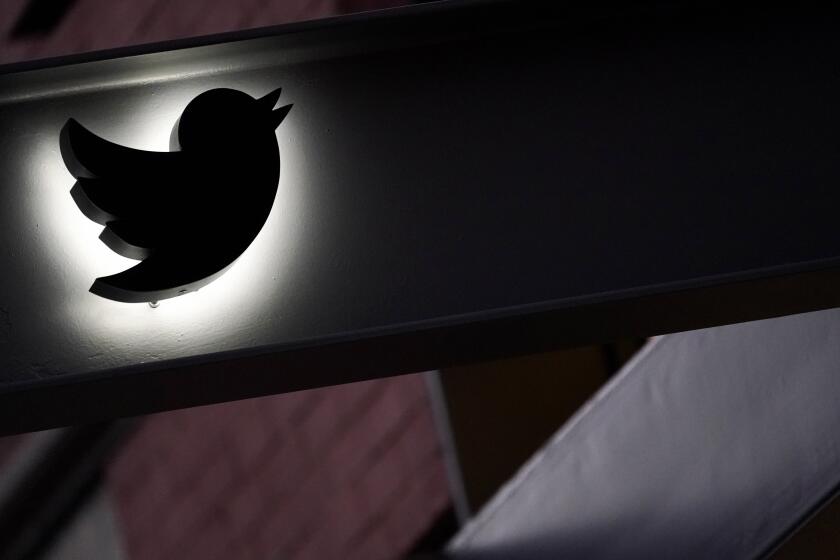Thinking of leaving Twitter? Its experience is hard to replicate

- Share via
The moves Elon Musk has made since purchasing Twitter in October — resulting in hundreds of employee resignations — have many either fleeing the platform or looking around for alternatives such as Hive Social or Mastodon, with the latter gaining more than a million followers over the last month.
I checked out Mastodon early on. It’s fine. But for now, at least, it lacks something vital, which has made me reluctant to leave Twitter even as Musk replatforms notorious characters from Twitter’s version of Arkham Asylum.
Twitter’s design allows diverse voices who have been shut out of traditional media structures to build influence via networks. That capacity, and its implications for wider democratic discourse, are at risk in a mass migration. Diverse creators and journalists — some of whom spent years building reputations that bring their work more attention — are already watching their Twitter networks fall apart.
How far will a mercurial Elon Musk, with no experience in running a social media site, move its moderation boundaries?
Twitter has long been what you make of it. The care you put into whom you follow and how you interact with the platform feeds a recommendation engine that can harness what sociologist Marc Granovetter called “weak tie” relationships. Families, local religious institutions and close friends are “strong tie” bonded groups, in which relationships tend to be low in number, enmeshed within the group and guided by a strong sense of purpose or common values. Weak ties are different — casual connections built around common interests in places like work, rec leagues and PTA meetings that expose us to people with points of view we don’t share.
Humans need both kinds of ties. Strong ties nurture us and keep us grounded. But weak-tie relationships act as important bridges to the world outside our bonded groups and can create more diverse avenues for sharing information, resources and opportunities. Those connections produce the type of information exchange and deliberation that citizens need to self-govern.
Central features of Twitter have excelled at creating weak-tie connections across groups by offering tools such as search and hashtags that turn topics and even communities into links. By allowing for discovery by universal search or retweet, Twitter greatly reduces the friction between a particular post or user and the broader user base, flattening differences and making it easier for voices at the margins to use weak ties to gain visibility. For example, #BlackTwitter and #DisabilityTwitter organize vibrant subcultures of discussion that spill into the wider network — making those communities universally visible and offering moments of serendipitous learning by resharing unheard voices across weak-tie networks.
Other big social media players, including Facebook or TikTok, lack the combination of short-form text and casual connection Twitter offers, so people are seeking other alternatives. But some platforms’ designs can limit weak-tie benefits.
Amid Twitter layoffs and uncertainty about toxic content, privacy and security, some users are concerned and looking for alternatives.
Consider the upstart Mastodon, which allows people to create communities (known as “servers”) that other users can join or interact with but are separated by design from one another. Users can follow people on other servers and theoretically diversify their experience. But you must align yourself with one server to sign up, and Mastodon has limited search options outside your chosen server (at least in part to shield users from trolls). Some Mastodon servers have rules against political posts, but what constitutes “political” is subjective and more likely to be negatively applied to those with outsider views. Similarly, the newly launched Post News has civility rules enforced by community feedback, creating opportunities to suppress minority voices. Hive Social, for its part, faces criticism for weak data security — which may especially drive away vulnerable people concerned about safety.
Mastodon, Post and Hive are deploying strategies to limit toxic content, a noble goal. But there are trade-offs to heavy-handed approaches that favor more insular strong ties. Without some software or user intervention, platforms that eschew an open-to-all public square design that came to define Twitter make it harder for diverse ideas to traverse weak-tie connections.
These concerns may be fixable. Twitter evolved — it took time and development to foster interaction across a wide range of users. Even in open systems, Twitter included, some users choose echo chambers. Twitter has also been criticized both for not doing enough to reduce toxic behavior and for doing too much. Hence the constant trade-offs for platforms: Changing Mastodon’s decentralized structure would break what attracts many of its fans. But adopting the use of algorithms to surface diverse content widely can activate the benefits of weak ties.
Those who by acclaim or fame quickly gain status on Twitter alternatives should listen to those who must fight for visibility and what they report about the difficulty of rebuilding their reach on different platforms.
When looking for alternatives, all social media users should consider how a platform’s design dictates their basic choices of following, posting and amplifying others. We also should look around at the users and posts for diversity to hedge against locking ourselves into echo chambers. After joining, we should then use our weak ties to amplify diverse voices. In a digital democracy, our weak ties effectively make us newsstands for ideas.
This is not just a problem for some Twitter users — it’s a problem for all of us. If our media window on the world is narrow, then our ability to make good democratic decisions suffers too.
Jeremy Littau is an associate professor in the Lehigh University Department of Journalism and Communication.
More to Read
A cure for the common opinion
Get thought-provoking perspectives with our weekly newsletter.
You may occasionally receive promotional content from the Los Angeles Times.











